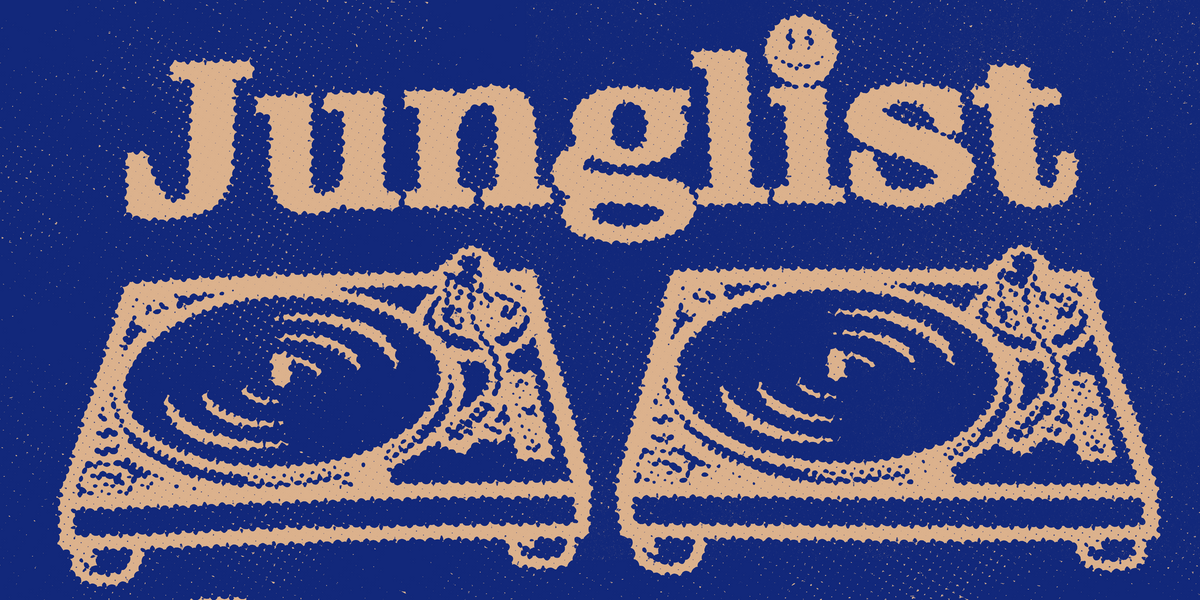Big ups to the long history of Jungle
This one is for the original nutters... the story of the history of the genre of Jungle.

In the vibrant spectrum of electronic music, Jungle stands out as a genre that has left an indelible mark. Born amidst the pulsating heart of the UK's rave culture, Jungle emerged as a dynamic and transformative force that shaped the music scene and left a lasting impact on the broader cultural landscape. Jungle, as untamed as its name suggests, is a unique fusion of breakbeats, heavy bass, dancehall reggae, and sound system culture. Characterized by its fast tempos (usually between 160-180 beats per minute), complex, layered breakbeats, and an emphasis on bass and sub-bass lines, Jungle is a sonic melting pot that mirrors the multicultural vibrancy of the UK's urban landscape. The raw energy of Jungle, its pulsating rhythms, and intricate sonic textures have captivated audiences for decades and continue to inspire musicians and producers today.
The Emergence of Jungle: A Sonic Revolution
The roots of Jungle can be traced back to the late 1980s and early 1990s, during the zenith of the UK's rave scene. As house and techno dominated the airwaves, a subset of DJs and producers began experimenting with sped-up breakbeats and reggae basslines, drawing inspiration from the sound system culture. This experimental sound, initially dubbed "breakbeat hardcore," gradually evolved into what we now recognize as Jungle. The emergence of Jungle was more than just a musical evolution; it was a cultural revolution. Jungle broke boundaries and challenged norms, reflecting the diverse, multicultural communities from which it emerged. Jungle was a defiant response to the mainstream, a sonic rebellion that resonated with the youth and the marginalized, constantly pushing the boundaries of what electronic music could be.
The Cultural Impact of Jungle: Beyond the Music
The impact of Jungle on the music scene was profound. Tracks like "Original Nuttah" by UK Apache and Shy FX, "Incredible" by M-Beat featuring General Levy, and "Inner City Life" by Goldie became anthems of the genre, their frenetic beats and heavy basslines echoing through dance halls and pirate radio stations across the UK. These hits didn't just dominate the charts; they defined an era. But the influence of Jungle extended beyond the dance floor. It permeated fashion, with Jungle-inspired styles featuring bold prints and oversized silhouettes becoming popular. It influenced art, with graffiti and street art often incorporating Jungle themes and motifs. It even shaped language, with Jungle slang becoming part of the vernacular. Jungle celebrated diversity and unity, bringing together people from all walks of life under the banner of music. Jungle was more than just a soundtrack to a generation; it was a way of life, a cultural movement that challenged societal norms and celebrated individuality and creativity.
The Legacy of Jungle: Inspiring the Future
Despite its peak in the mid-90s, the legacy of Jungle continues to resonate today. It paved the way for genres like drum and bass, UK garage, and grime, its DNA evident in the breakbeats and basslines that define these styles. Artists like Chase & Status, Congo Natty, and S.P.Y continue to draw inspiration from Jungle, keeping its spirit alive in their music. Moreover, Jungle's influence can be felt in the resurgence of rave culture and the continued popularity of music festivals. Its ethos of unity and inclusivity, its celebration of diversity, and its defiantly non-conformist spirit continue to inspire and resonate with new generations of music lovers.
The Unstoppable Rhythm of Jungle
In conclusion, Jungle is more than just a genre; it's a cultural phenomenon that has left an indelible mark on the music scene and beyond. From its roots in the UK rave scene to its enduring influence on today's music landscape, Jungle remains a testament to the transformative power of music. It's a genre that broke boundaries, challenged norms, and continues to inspire, proving that, like the beat of a drum, the pulse of Jungle is unstoppable. Its legacy is not just in the tracks that defined an era or the artists who continue to draw inspiration from its sound, but in the cultural movement it sparked. It's in the unity and diversity it celebrated, the societal norms it challenged, and the individuality and creativity it championed. The beat of Jungle continues to resonate, echoing through the halls of music history and into the future, a testament to its enduring power and influence.


